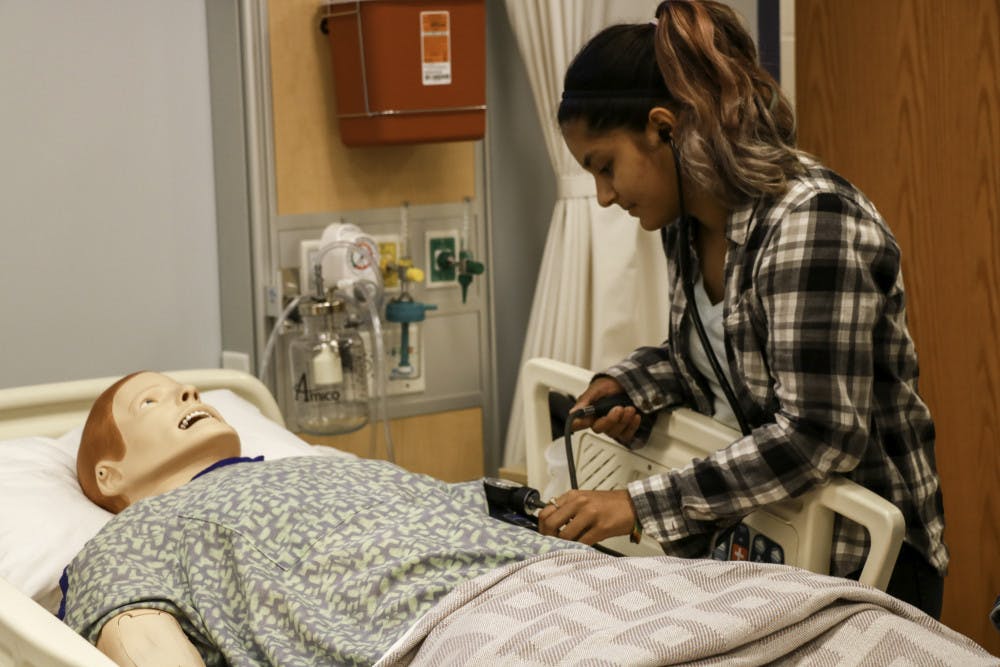By Camille Furst
Correspondent
The School of Nursing celebrated Healthcare Simulation Week, an annual event founded by the Society of Simulation in Healthcare from Monday, Sept. 17 to Friday, Sept. 21. The week honors medical professionals who use simulations to provide safe and effective healthcare around the globe.

Events included an open house event at the Nursing Simulation Lab in Forcina Hall on Sept. 20 as well as displays in the Fitness Center and Recreation Center by School of Nursing graduate students Sonia Thoonkuzhy and Joan Markison.
The Nursing Simulation Lab Open House displayed its artificial intelligence robot, which also highlighted the School of Nursing’s technological progress.
“His name is Alex, but he’s considered an artificial intelligence because he can talk and he has cameras in his eyes,” said Ann Fallon, a clinician educator for the School of Nursing. “This is the first one you can talk to.”
As an artificial intelligence mannequin, Alex can use human interaction to create sentences of his own, and none of his remarks are pre-recorded.
“You can’t just work on people who don’t talk,” Fallon said. “You need to have a conversation while you’re working with them. We can give him diseases and he’ll talk about what his symptoms are. This is real-time conversation.”
For instance, Fallon asked Alex how much sleep he gets at night, to which he responded, “I sleep around six or seven hours per night. I go to bed around 10:30 p.m. and get up around 6:30 a.m.”
Alex, along with other mannequins in the simulation lab, breathes and has a pulse.
“A student can, on any of these mannequins, listen to the heart and hear breath sounds and (determine) if it’s asthma, rails, bronchitis or whatever they hear,” Fallon said.
This is a major advancement for the College’s Nursing Simulation Lab, as the simulation facilitators can program Alex with illnesses to have nursing students converse about and learn to treat.
Thoonkuzhy and Markison ran a display that focused on common physical and mental health concerns among college students. The display featured two mannequins— one depicted the adverse effects of binge drinking and the other of depression. The goal of the demonstration was to highlight the importance of addressing these conditions and advertise the on-campus resources that can help.
“As part of simulation week for the School of Nursing, We’re bringing (the simulation lab) out to the campus community,” said Markison. “It’s so students campus wide can get a feel for what the simulation lab has and what clinical situations we can set up with them.”







